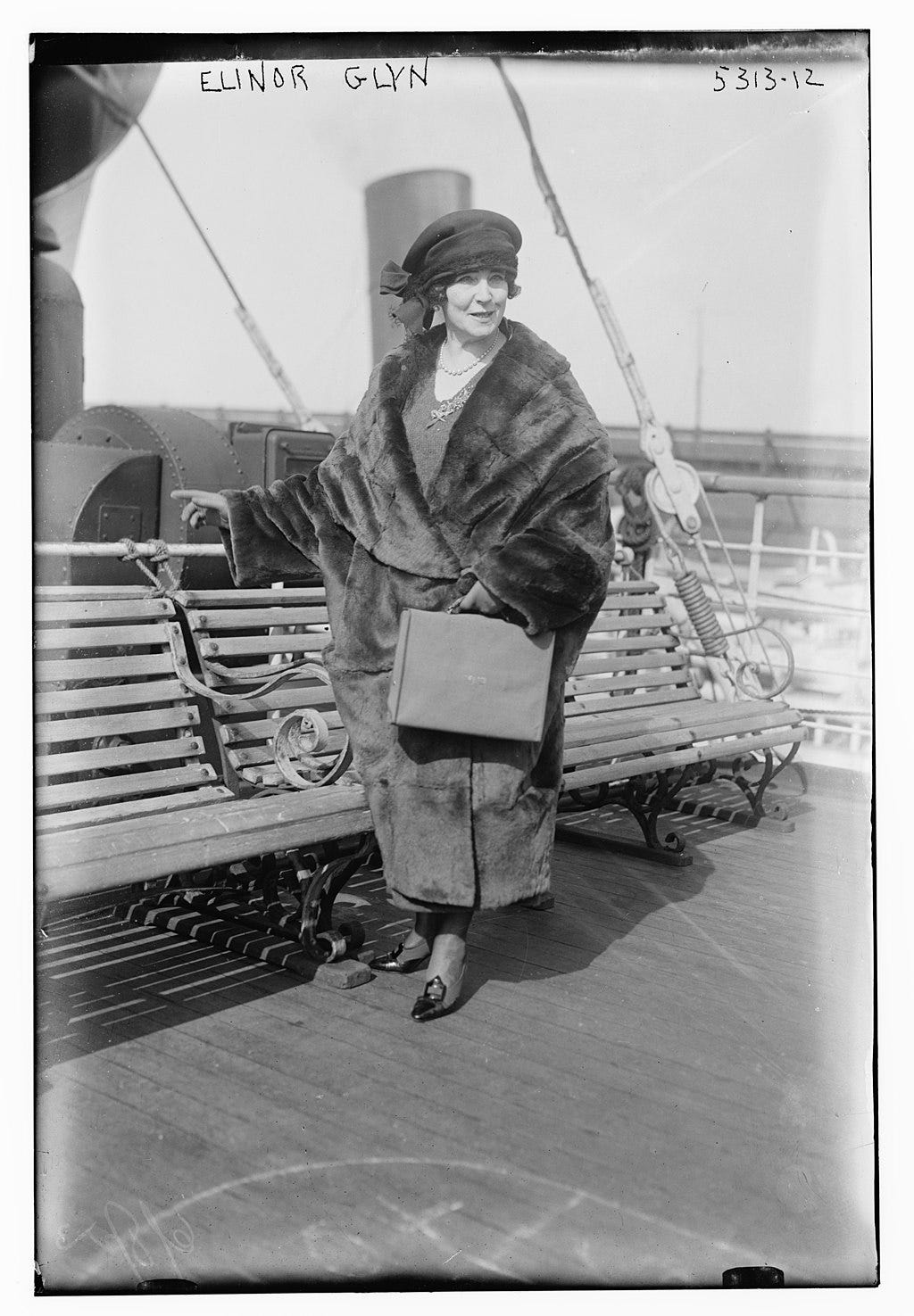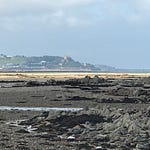Welcome to another episode of the History Islands, continuing the true story of one of Jersey’s most famous daughters. Elinor Sutherland has survived the ordeal of her Channel Islands shipwreck in 1875, and she now begins her ascent to the heights of Hollywood.
Lucy and her sister Elinor grew into a pair of socially ambitious and utterly self-assured young women. Lucy, later Lady Duff-Gordon, eventually became a pioneering couturier with her own fashion house, Lucile Ltd. She would go on to survive the icy wreckage of the Titanic disaster.
Elinor’s own life was lived in a whirlwind of energy. She was determined to escape the “quaint and faintly pathetic little Island” of her birth. After a dizzying spell in Paris, she married Clayton Glyn, a wealthy Essex landowner and country squire. He provided her with a ready-made place amidst the landed elite of Victorian England, in a world of sumptuous country house soirées and shooting parties.
Yet within weeks of the wedding, her romantic dreams were already being curtailed by his dour country practicality. Elinor, full of the joys of spring, longed to stroll through a beautiful bluebell wood in the estate, but she was strictly denied entry lest she disturb the pheasants. Soon enough, Clayton’s affection towards his young wife was cooling, and the relationship drifted into a loveless marriage of convenience.
Elinor nonetheless produced two girls, Margot and Juliet. Unbeknownst to her, the prospect of lacking a male heir sent her husband into a downward spiral of depression. Immediately after the birth of his second daughter, Clayton fled to Monte Carlo and burned the colossal sum of ten thousand pounds on the roulette wheel. In his eyes, without a male heir, there was no longer any point in passing a penny onto the next generation; everything must go. The family fortune was permanently destroyed in that single night of madness.
Frustrated by her husband’s waning affection, Elinor’s creative urges found another outlet. She penned a light-hearted portrait of fashionable society, entitled The Visits of Elizabeth. It was an immediate sensation. In an age where women were still denied the vote, she personally negotiated the same terms as Rudyard Kipling, the leading author of the day. Her impressive advance for her second novel was £500, fortified by 25% royalties; the cash sum alone could buy a London townhouse.
Long ago, as a young girl, Elinor had seen the legendary actress Sarah Bernhardt play in Theodora, in Paris. Her majesty, her allure and her astonishing personal magnetism had left an indelible impact. The idea suddenly occurred to her – what would happen if such an incredible, fierce woman fell in love with a dashing young English gentleman? This conceit formed the basis of Three Weeks, the novel that would seal Elinor’s notoriety and make her fortune.
The plot was hardly Shakespearean. A dashing and handsome young man, fresh out of Oxford, falls under the allure of a sophisticated older lady. She turns out to be a Balkan queen whose life is in danger, and for three weeks they enjoy a passionate love affair. It was hardly its language that made Three Weeks an immediate sensation. The writing was effulgent and overblown, as the era demanded, and the content was tame even by contemporary music hall standards. In Edwardian eyes, the book’s scandalous power arose from the shocking social assumptions in the novel. In this romance, the powerful woman is in control – she is the hunter.
Three Weeks was an immediate sensation upon its publication in 1907. Within nine years it had already sold nearly two million copies in Great Britain, the Empire and America alone. Eventually it would sell many more. It was translated into virtually every European language. The tiger skin the lovers reclined on became a favourite cliché of the age.

Elinor toured the world, coasting the wave of fame. Just before her forty-third birthday, she set sail for America, with 60 pairs of high-heeled shoes neatly packed. The New York press loved her, and she took tea with a literary giant, the elderly and white-haired Mark Twain. She then toured the Wild West, and on her visit to Rawhide, Nevada, she was serenaded by hundreds of gold miners. She was impressed by “nature’s gentlemen” and for the first time moved beyond the straitjacket of her Victorian upbringing, realising the true gentility was not dependent on social rank. Yet the surge of fame was already turning her head. Elinor was falling increasingly under the spell of esoteric philosophy, believing she could conjure up waterfalls of wealth purely by the power of intention.
Her escapades continued to provide fertile material for her novels. One expedition took her deep into the heart of Imperial Russia, into the feverish, decadent banquets that the nobles enjoyed in their magnificent palaces. Her hosts cautioned her to avert her eyes as starving peasants wandered past barefoot in the snow. Elinor cavorted in golden troikas through snowstorms, and toured the Winter Palace, where she solemnly declared herself to be the reincarnation of Catherine the Great.
Yet behind the glorious illusion, things were falling apart. Her husband was dying, his purse empty and his liver shredded. She was forced to concoct a mediocre novel in eighteen days just to stave off his creditors. Her own great and passionate infidelity, with Lord Curzon, the former Viceroy of India, limped on without commitment or resolution. She only learned their ten-year love affair was over when she read in The Times that he was engaged to another woman. It was a nasty blow for the self-styled queen of romance.
Elinor escaped to Paris, scoffing lobster, raspberries and cream every day at the Ritz. Then came another terrible, sudden shock. German armies were on the march. In August 1914, Europe tumbled into the abyss, and romantic love was shredded to death on the barbed wire of Somme. In the poignant words of Larkin, “Never such innocence again”.
The war proved another fruitful canvas for Elinor; she raced to report news from the front line and did menial voluntary work in London. Yet as the dust settled across a scarred and bloodied Europe, what did the future hold? Where could an ageing Romantic, approaching her sixtieth birthday, turn? The answer was simple: to go West. Hollywood was calling.
This story is adapted from Jersey: Secrets of the Sea, which is available on Amazon UK and in a range of Jersey bookshops.
Music courtesy of Epidemic Sound (Chariots by Gavin Luke).
© Paul Darroch 2024. The History Islands newsletter and website are produced by Open Page Learning Ltd which is registered with the Jersey Office of the Information Commissioner (JOIC) registration number 70929.











